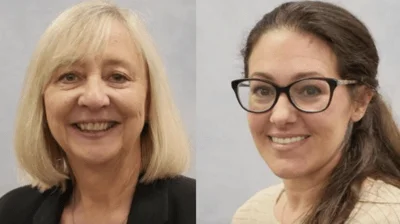Roseland Community Hospital set up a drive-thru testing site for COVID-19 in its parking lot. | Facebook
Roseland Community Hospital set up a drive-thru testing site for COVID-19 in its parking lot. | Facebook
Antibody testing for COVID-19 appears critical as the Illinois Department of Public Health announced another 1,173 new cases of the coronavirus on April 13 and 74 more deaths.
A positive result for the antibody test lets doctors know a person had the virus but now is most likely immune. Its use also will help scientists figure out how widespread the disease is and who can go back to work safely. It might even help develop new treatments for people still sick from the disease.
Roseland Community Hospital offers a drive-thru testing site. It is using a test that involves a venous blood draw, much like a patient would undergo during an annual physical. A tourniquet is applied to the patient's arm and a vial of blood is extracted. In about two minutes, the patient's part in the test is complete.
It can take 72 hours for Roseland’s lab to run the tests. Patients are told they will be called with the test results, although one patient who took the antibody test on April 9 was still waiting to hear back from the hospital on April 13.
Of those tested, 30% to 50% have antibodies, while 10% to 20% have the active virus, a Roseland Community Hospital phlebotomist told Chicago City Wire.
A new test from Cellex received emergency approval from the U.S. Food and Drug Administration (FDA) last week. Like the serology test offered at Roseland, Cellex's test detects antibodies to the virus rather than the virus itself.
Up until now, antibody tests that have been available, including the one offered by Roseland, were not necessarily FDA approved, although the FDA did grant companies permission to "market or use their tests once they have performed the appropriate evaluation to determine that their tests are accurate and reliable," according to the FDA's website.
“Right now it’s a wild west show out there," Eric Blank of the Association for Public Health Laboratories told ABC News recently. “It really has created a mess that’s going to take a while to clean up."
Other tests are close to readiness for approval, Dr. Elizabeth McNally, Northwestern University’s director of the Feinberg School of Medicine Center for Genetic Medicine, told the Chicago Tribune.
A home testing kit might become available.
"The simplest would be one that you do at home, that you would poke your finger and squeeze out a little blood and put it on a little strip, and it’ll be the plus-minus whether you’ve developed antibodies or not,” McNally said.
More testing that reveals who had the disease can help scientists and doctors figure out how safe people should be under the protection of “herd immunity.”
“The people who are already covered can actually provide protection to the people around them, just because it’s hard for the virus to spread,” McNally said. “The virus can’t spread anymore, so people are less likely to get it.”
This type of test should be simpler to roll out than the swab tests, which the U.S. Centers for Disease Control recommends using to detect the actual live virus.
Dwight Gimley had an appointment last week to be tested for the active COVID-19 virus at the Pilsen Family Health Center. Unlike the serology antibody test, the test for the active coronavirus involves inserting a swap into the patient’s mouth and sinus cavity.
Gimley said his test also took about two minutes.
With only three people being tested at the time, he said “I believe they could” when asked if the health center could do more testing if needed.
Public health officials are determining who needs to be tested as more test kits and systems become available.
Illinois reported a total of 22,025 confirmed cases as of April 13 with 794 total deaths.
In Cook County, 31 males and 27 females were among the new confirmed cases. Ages ranged from 30s to 90s for men, and from 40s to 100+ for females.
The number of influenza cases in 2017 and 2018 still outpace confirmed cases of COVID-19. More than 28,000 Cook County residents contracted influenza, North Cook News reported. The coronavirus numbers are approaching the number of flu cases for the first three months of 2018, which had 6,516 confirmed cases of influenza with 13 fewer days to report.
“Most of us are familiar with seasonal influenza or the ‘flu,’ a viral infection that, despite annual vaccinations, results in approximately 36,000 deaths in the United States, including 2,000 in Illinois, and 200,000 hospitalizations annually,” the IDPH website said.



 Alerts Sign-up
Alerts Sign-up